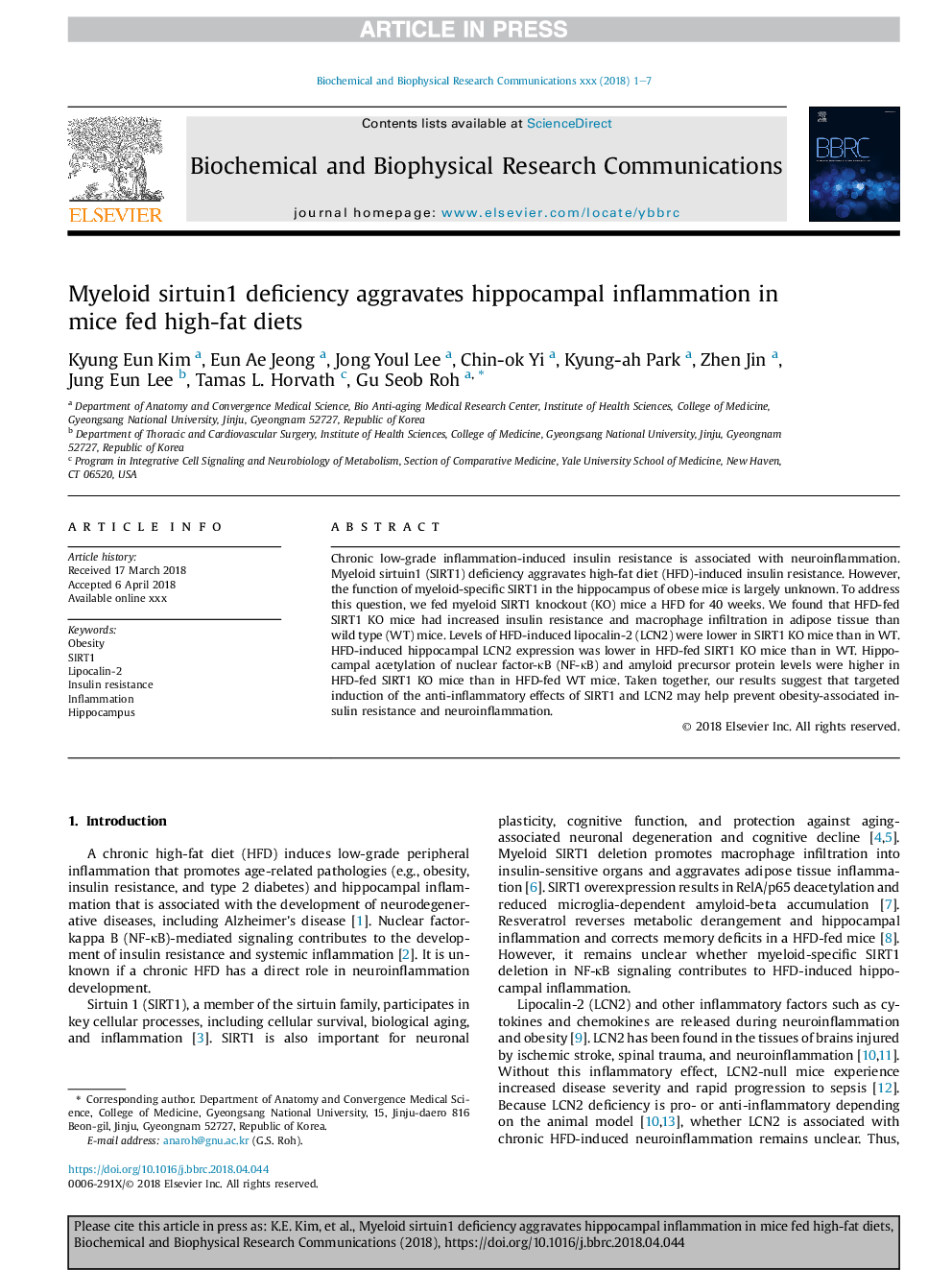| Article ID | Journal | Published Year | Pages | File Type |
|---|---|---|---|---|
| 8293043 | Biochemical and Biophysical Research Communications | 2018 | 7 Pages |
Abstract
Chronic low-grade inflammation-induced insulin resistance is associated with neuroinflammation. Myeloid sirtuin1 (SIRT1) deficiency aggravates high-fat diet (HFD)-induced insulin resistance. However, the function of myeloid-specific SIRT1 in the hippocampus of obese mice is largely unknown. To address this question, we fed myeloid SIRT1 knockout (KO) mice a HFD for 40 weeks. We found that HFD-fed SIRT1 KO mice had increased insulin resistance and macrophage infiltration in adipose tissue than wild type (WT) mice. Levels of HFD-induced lipocalin-2 (LCN2) were lower in SIRT1 KO mice than in WT. HFD-induced hippocampal LCN2 expression was lower in HFD-fed SIRT1 KO mice than in WT. Hippocampal acetylation of nuclear factor-κB (NF-κB) and amyloid precursor protein levels were higher in HFD-fed SIRT1 KO mice than in HFD-fed WT mice. Taken together, our results suggest that targeted induction of the anti-inflammatory effects of SIRT1 and LCN2 may help prevent obesity-associated insulin resistance and neuroinflammation.
Related Topics
Life Sciences
Biochemistry, Genetics and Molecular Biology
Biochemistry
Authors
Kyung Eun Kim, Eun Ae Jeong, Jong Youl Lee, Chin-ok Yi, Kyung-ah Park, Zhen Jin, Jung Eun Lee, Tamas L. Horvath, Gu Seob Roh,
